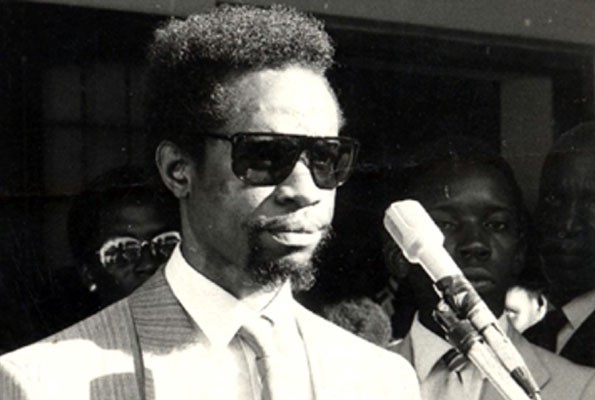“What has he come to do here?” Mr Mulimu asked his Secretary, on hearing that Mr Yaliwo, the former Managing Director (MD) of Bulya Cooperative Bank (BCB), was out waiting in the lobby. In the early 1990s, BCB, as part of agreement with IMF/ World Bank, had put been put up for restructuring. This was all to help stalled African economies revive by lending them money on certain conditions. BCB was one of many state enterprise consequently restructured which had led to Mr Yaliwo being laid off. Mr Mulimu, then a middle level manager, was one of the few survivors of a skeletal staff left behind. He was promoted as the new MD.
Soon after he received his terminal benefits, Mr Yaliwo, quickly noticed an error. He recalled back in the early 1970s shortly after joining BCB he was notified by the Head of personnel that 10% of his pay would be deducted automatically to contribute to a pension scheme based in the UK. BCB would also add 5%; which made considerable savings for his retirement. However, in the mid-seventies, with the economy in doldrums, the bank started defaulting to remit money to the pension fund. Yet, in spite of that, the BCB continued to deduct staff pay and the money was used to cover operational expenses.
Once he got his pay slip, seeing the gap, Mr Yaliwo, immediately raised the matter with the new MD. “Some of us used to contribute to a UK pension based pension scheme yet you have not remitted us those funds,” he called on Mr Mulimu. “I know we kept deducting that money, as I was then a junior officer in the Accounts section.”
“That can’t be true!” Mr Mulimu did not take kindly to this claim. Soon after he had became MD he took quick offense if any person wanted to draw money from BCB accounts, which he almost viewed as personal. Not only would he have requisition papers sit for weeks, if not months, in his in-baskets, waiting for clearance, he would always find a way to reject claims, which often he claimed were fictitious.
Suppliers were habitually sent back empty handed, him accusing them of falsified delivery. Sometimes he watched them from his window apparently enjoying making them walk off BCB campus disgruntled. On occasion, upon receiving staff conference attending lists for workshops, asking for reimbursements, he would personally visit hotels, up country, to ascertain if the event took place. One day upon finding one workshop had not taken place, his vigilance rose to another pitch. Every claim that came to his desk had now to be routinely sent back for more proofs. “I need to see the photographs as proof of the workshop!”
Eventually, some staff decided to baptize him the nick name “Aswan Dam.” But on learning so, he took pride. “Yes, I am the dam against all those thieves hiding and wanting to steal money for no work.”
Not everyone was convinced though about Mr Mulimu’s motives. On one hand while he was slow and reluctant to entertain colleague request for advances, whenever he himself needed money, it would take just a few hours to force the whole Accounts machinery to release money to cater for his expenses. He would harass Accounts Assistants with repeated calls bordering on threats, noting the emergency of the matter, while easily shunning off any required proof, as not necessary. “This is urgent BCB business for the MD and please don’t frustrate company work or you will get yourself in trouble.”
So, when the former MD came back claiming that BCB still owed him money, his battle instincts rose. “I need proof of all those deductions Mr Mulimu hastily went on with objection, shunning off his former colleague. When Mr Yaliwo, who now lived up country, left and traveled back with his pay slips, which he had meticulously kept, still Mr Mulimu demurred. “We have no money and what we gave you is enough.”
“But if BCB lacks the money,” Mr Yaliwo advised, “then take it to Finance Ministry since she is the one overseeing you. The debt can be passed on to the government and besides I also left some money in some reserves.”
“I will look into that,” he promised. But he didn’t.
After tiring of traveling back and forth, and being made to wait till late to see the MD, Mr Yaliwo, finally decided to team up with other laid off workers, denied of their full terminal benefits too and file a case in the High Court. But once he got summons Mr Mulimu, shrieking with anger, took the case to an old law firm of BCB, led by a grey haired Senior Counsel, Mr Magezi.
“We must fight off these spurious claims by thieves!” Mr Mulimu urged the old seasoned lawyer. However, upon going over the files from BCB, Mr Magezi advised BCB that hers was a poor case. “Pay these old staff of yours,” he called BCB. “After all they used to work for you and are responsible for the BCB you found.”
“We paid them already and enough!” Mr Mulimu cut off the old lawyer. He then started shopping around for a firm that would help BCB win the case against these “ungrateful thieves”. He found one but at a stiff price. However, when it lost the case, Mr Mulimu remained still unfazed. “There is no way I am going to see BCB give out free money to those people!” He declared and appealed. “I was given this job to protect BCB against thieves.”
And that is when tables turned.
As part of the restructuring exercise, Parliament had passed a law that Accounting Officers like Mr Mulimu could only serve two five year- nonrenewable terms. In the heat of all his battles with ex staff Mr Mulimu had forgotten that his tenure was of a limited duration. Seeing his end coming, he called for a special meeting of the Board to sit and extend his term. It was at a resort where as usual he forced Accounts to release a huge envelope for each Board member in record time.
Now, on the Board was a young Christian lawyer who noted that the Board had no powers to override an Act of Parliament. “Members we need to be careful not to pass rulings in violation of the law!” Observing that this was being noted in the minute, the rest of the members cowed and agreed, in spite of helping themselves to the envelope. Mr Mulimu’s contract was not extended.
Out of a job, Mr Mulimu, received his terminal benefit and quickly noticed all the money he had once remitted for the pension fund, was not passed on to him. Without wasting time, Mr Mulimu, got into his car, and drove fast to BCB.
At the entrance the old MD was shocked when security delayed allowing him to proceed inside BCB campus. “Do you have an appointment?” A new gruff security man asked him.
“How can you ask when I was the former MD here!” Mr Mulimu growled.
“Next time, it is better to first call!” Security warned him.
Once Accounts staff heard “Aswan Dam” was back to lodge a financial claim, they deliberately decided to make him taste some of his old medicine. “There is no need to talk to anyone here,” said an intern staff who was sent to talk to the former boss, as he stood waiting in the corridor. “Your matter is being handled and you would be informed in due time!”
Flushing with anger, Mr Milumu stormed back to his car. He could not understand why the organization he had in the past vehemently fought for, was now treating him so coldly. “People are so ungrateful!” he raged. He decided to call up the new MD called Mupya. “I have all this money owed to me,” he shared, heatedly.
“I will get back to you after making inquiries,” said Mupya, who had been hired from outside and knew little of her past operations.
When Mupya passed on the concerns of the former MD to the rest of Management he noticed they seemed all bemused. They took their time responding but finally gave him word for Mr Mulimu. “There is a court case on this matter under appeal and we need to wait for the outcome.”
It is at this point, that, Mr Mulimu decided to look up Mr Yaliwo. He desperately needed this cash payout as he was deep in debt and close to losing a commercial building he had mortgaged. Used to an extravagant life and realizing that he was now without a steady income, he had to find a quick way to make ends meet. “I think we should sit down and talk to see how to get our money back,” Mr Mulimu, lightly asked the man he had once seen as a nuisance. “I am now on your side.” He giggled, nervously.
“Is that so!” said Mr Yaliwo, quite surprised to hear from him, at last, as he had never called him before. It had been close to a decade when he had been made to suffer for lodging this very claim only to be resisted by the very man who was now at the end of the line. In the course of time, some of the old staff he had started this struggle with had even passed on, while dying in poverty.
“Welcome to our side of the line,” Mr Yaliwo, finally told once his old tormentor. Having hung up, he sat, shaking his head.










